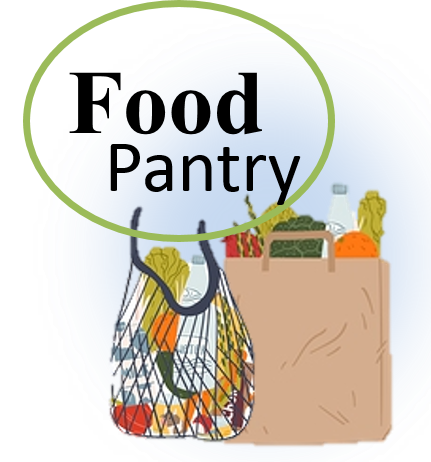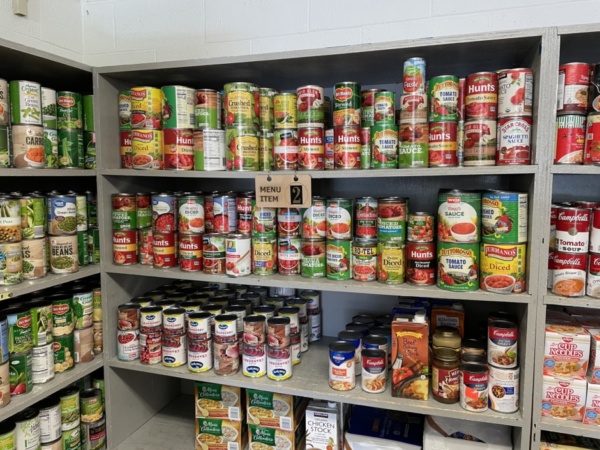Why Sustaining Your Regional Food Kitchen Is Crucial for Aiding Those in Need
The significance of sustaining local food kitchens can not be overstated, especially in the context of food insecurity, which affects an alarming variety of individuals and families within our areas. These necessary resources not only offer instant relief from cravings but likewise add to wider societal advantages, consisting of boosted health and instructional results. As we explore the complex duty of food kitchens, it ends up being obvious that their impact expands much beyond just dispersing food (Food Pantry Lockhart). Understanding this much deeper link might prompt a reconsideration of just how we involve with and support these important establishments.
Recognizing Food Instability
Food instability impacts roughly 10.5% of houses in the United States, highlighting a considerable public health problem that transcends mere hunger. It refers to the absence of constant accessibility to enough food for an energetic, healthy and balanced life. This problem can result in a series of damaging outcomes, consisting of poor wellness, raised medical care expenses, and lessened academic efficiency amongst youngsters.
The root causes of food instability are complex, frequently coming from economic variables such as joblessness, poverty, and underemployment. Geographical area can likewise play a critical role, with food deserts-- locations with minimal access to affordable and nourishing food-- worsening the issue - Food Pantry Lockhart. Additionally, systemic elements, including racial and social inequities, add to the out of proportion effect of food instability on marginalized neighborhoods
Addressing food instability is not just concerning enhancing food supply; it calls for a thorough approach that incorporates economic security, education and learning, and community support. Food instability not only impacts specific well-being yet also has wider implications for societal health and wellness and performance. Understanding its intricacy is crucial for establishing effective treatments and fostering long-lasting remedies that guarantee all people have reputable accessibility to nourishing food.
The Function of Food Pantries
Regional food cupboards function as vital lifelines for individuals and households dealing with food insecurity. They provide vital food things to those who might struggle to manage ample nourishment because of economic hardship, unemployment, or unpredicted situations. By dispersing food at no charge, these companies aid ease hunger and stop the negative health and wellness effects linked with poor diets.
Food cupboards frequently companion with neighborhood ranches, supermarket, and community organizations to resource a variety of healthy food products, including fresh fruit and vegetables, milk, and proteins. This partnership makes sure that kitchen customers receive not just nourishment yet likewise healthier alternatives that contribute to total wellness.
Additionally, food kitchens work as area hubs, promoting links amongst residents and providing a sense of self-respect to those in need. Numerous kitchens use added resources, such as nourishment education and learning and recommendations to social solutions, aiding customers browse their obstacles better.
Essentially, food pantries play a multifaceted function in combating food insecurity. They not just address instant cravings but likewise empower households and individuals to improve their circumstances, consequently advertising neighborhood resilience and cohesion.

Advantages of Sustaining Food Pantries

Supporting food cupboards not only nourishes those in demand however additionally enhances the fabric of the community. By supplying crucial food resources, food kitchens reduce appetite and minimize food instability, which is crucial for the wellness and wellness of people and families. Accessibility to nutritious food adds to improved physical wellness, far better instructional outcomes for youngsters, and enhanced psychological wellness, thus promoting a much more efficient and engaged community.
Furthermore, sustaining food pantries promotes social communication. These organizations offer as hubs for community engagement, combining volunteers, contributors, and receivers in a shared objective to combat cravings. This partnership can damage down obstacles, foster understanding, and construct relationships among varied area participants.
In addition, donations to food cupboards, whether in the kind of food, funds, or time, boost the neighborhood economic climate. Numerous food pantries prioritize sourcing from neighborhood producers, therefore sustaining neighborhood agriculture and organizations. This creates a cycle of assistance that benefits not only those in demand yet the neighborhood overall.
Just How to Get Involved
Interaction with food kitchens can take several kinds, allowing people and teams to make a purposeful influence in their communities. Among one of the most direct means to obtain involved is by giving away food items. Non-perishable things such as canned products, pasta, and rice are constantly popular. Monetary donations are additionally indispensable, as they make it possible for food cupboards to purchase fresh produce and vital materials.
Offering your time is one more impactful way to sustain neighborhood food pantries. Lots of website here companies count on volunteers for arranging, packing, and dispersing food. This hands-on involvement not only helps the pantry but also cultivates a sense of community. On top of that, consider organizing food drives within your community, school, or office group to elevate awareness and gather resources.
Collaborations with local companies can even more boost support for food cupboards. By taking these steps, people and teams can dramatically strengthen the initiatives of neighborhood food kitchens and help those in demand.
Neighborhood Influence and Connection
Recognizing the extensive impact of food kitchens on area well-being is necessary for cultivating a spirit of connection and collaboration. Food pantries serve not just as crucial sources for those facing food instability but also as centers for community involvement. They bring with each other diverse groups-- clients, benefactors, and volunteers-- developing a setting where individuals can support and link one an additional.
The effect of food pantries expands past plain stipulation of food; they function as a driver for social communication. By getting involved in kitchen efforts, community participants can create partnerships that go beyond socioeconomic obstacles. This network of support helps to dismantle the stigma frequently related to food support, fostering an environment of approval Visit Your URL and understanding.
As individuals unite in their initiatives to support regional food cupboards, they cultivate a sense of common Homepage purpose and obligation, strengthening the idea that everybody has a function to play in ensuring that no one goes hungry. Eventually, sustaining food pantries enhances the fabric of the area as a whole.
Conclusion
Sustaining regional food kitchens is important in combating food insecurity and improving the well-being of at risk populaces. By making certain accessibility to nourishing food, these organizations add to enhanced health outcomes, educational performance, and psychological wellness. Interaction with food kitchens promotes community links, promoting social cohesion and equity. Ultimately, the collective initiative to bolster these important sources plays a substantial duty in constructing a much healthier, more durable culture where all individuals have the possibility to prosper.
